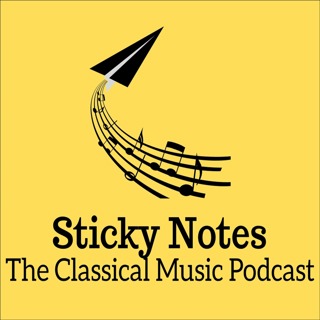
R. Nathaniel Dett: The Ordering of Moses
In May of 1937, R. Nathaniel Dett's oratorio "The Ordering of Moses" was premiered by the Cincinnati Symphony. The performance was carried live on national radio by NBC, but about 3/4's of the way through the piece, the broadcast was halted due to unspecified scheduling conflicts, the origins of which remain mysterious and highly speculated on. And since its premiere, The Ordering of Moses has been performed only a handful of times, and never, as far as I can tell, outside of the United States. Well, that is going to change this February, as I'll be conducting the UK premiere of the Oratorio with the City of Birmingham Symphony Orchestra and Chorus and soloists Rodrick Dixon, Chrystal Williams, and Eric Greene. Today on the show I'm going to tell you all about Dett's remarkable story, his passionate advocacy for black folk music and spirituals, and the profoundly moving music that runs all the way through The Ordering of Moses. You won't regret jumping into this rarely heard and rarely talked about gem of a piece, so come join us!
27 Jan 202257min
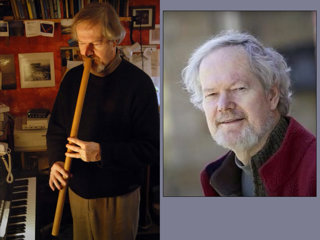
The Music of Ingram Marshall
"I never really thought of them as walls. I thought of them more as boundaries. Walls are a much more serious matter. You're not supposed to be able to get through, while boundaries at least you can crossover and I think the whole crossover thing is basically what the history of music in the second part of this century is about. It's about crossing over these boundaries." If there's one quote that could sum up the music of the composer Ingram Marshall, it might be this one. Last week I talked about Sibelius and our inability to place him in the typical classical music eras of Romantic or Modernist music. Well, Ingram Marshall's music follows very much on that discussion, and it's no surprise that Sibelius is one of Marshall's favorite composers. I imagine most of you listening to the show today are not familiar with Ingram Marshalls' music, so today on this Patreon Sponsored episode, I'm going to briefly give you a background on this remarkable modern composer, and then we'll finish the show with both an interview and an analysis of Marhsall's work Flow with the great composer Timo Andres, who studied with Marshall and had some great insights on his music. You won't regret diving into the remarkable work of Ingram Marshall, so come and join us!
20 Jan 202258min
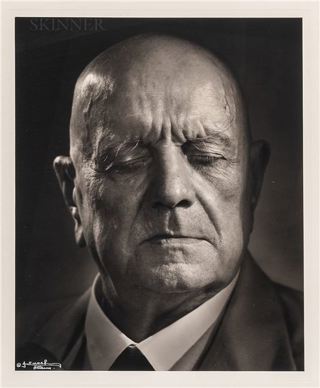
Sibelius Symphony No. 5
Sibelius never gets mentioned on "most" lists, the most innovative, modernistic, romantic, beautiful, conservative, ugly, violent, peaceful etc. In fact, no one is ever sure where to put him on these lists, and that's partly due to that lifespan that began when Brahms was 32 and ended when Pierre Boulez was also 32 years old. And this uncomfortable place between Romantic and Modernist is exactly why Sibelius is, to me, one of the most interesting topics to cover on this show - and the perfect vehicle to explore Sibelius further is the 5th symphony, one of the most remarkable fusions of modernism and romanticism I've ever heard.
13 Jan 20221h 6min
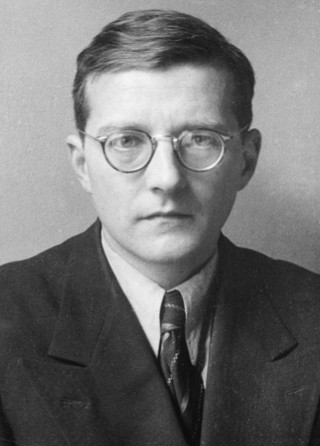
Shostakovich Symphony No. 5, Part 2
Last week I told you the story of the genesis of Shostakovich's 5th symphony. We talked politics, but we also talked about just the music itself. Today, I'll take you through the second half of the symphony, again first from a musical point of view. But by the end of the piece, the political conversation and the debate over the ending itself becomes unavoidable. There is no other piece whose character or even tempo is as debated as the ending of Shostakovich's 5th, so we're going to have it out! Join us!
6 Jan 202249min
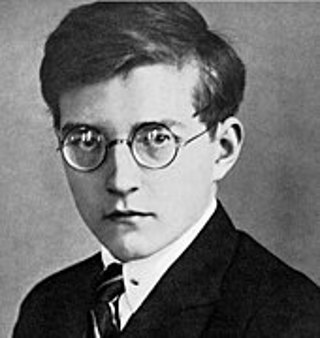
Shostakovich Symphony No. 5, Part 1
Shostakovich's life and career was so wrapped up with his relationship to the Soviet government that it is sometimes hard to appreciate that, all else aside, he was one of the great 20th century composers. His 5th symphony is the meeting point between Shostakovich's music and the political web he was often ensnared in, and it is a piece that is still being vociferously debated. This week we're going to tell the story of the piece's genesis, and then we'll explore the first two movements of the symphony.
30 Dec 202152min

Ysaye Sonatas for Solo Violin
If you're not a violinist, you might not be familiar with the name Eugene Ysaye. But this violinist and composer was called "The King of the Violin" at the turn of the 20th century. Ysaye's biggest compositional achievement was inspired by a performance by the legendary Joseph Szigeti in 1923. Enraptured, Ysaye went into his studio and 24 hours later (!), he emerged with 6 solo violin sonatas, each dedicated to one of his favorite violinists. Dive in with us this week to learn all about these amazing works!
16 Dec 20211h 16min
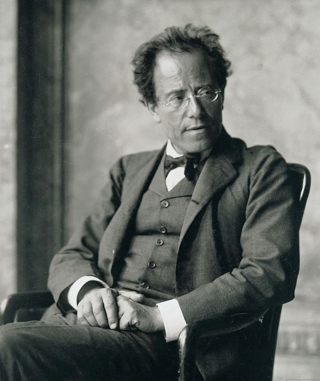
Mahler Symphony No. 1, Part 2
This week, on part 2 of this look at Mahler 1, we're going to take a deep dive into the third and fourth movements of this massive and massively ambitious symphony. We'll talk about Frere Jacques, bizarre woodcuts, Klezmer bands, cries of wounded hearts, the most touching consolation, terror, rage, standing horn sections, and one of the most exhilarating endings of any symphony. Mahler's 1st symphony was one of the most ambitious statements a young composer ever made, so let's finish the journey together!
9 Dec 202158min

Mahler Symphony No. 1, Part 1
No one makes a grand statement quite like Gustav Mahler, and his first symphony, nearly an hour long, was one of the boldest statements ever made by a young composer. Today I'll take a look at the history behind the early inspirations behind the piece, Mahler's turbulent life, and the first two movements of the symphony. As the great Bernard Haitink said, Mahler had a talent for suffering, but this symphony is often full of a naivete and joy missing from Mahler's later works. Join us to find out more!
2 Dec 202147min






















